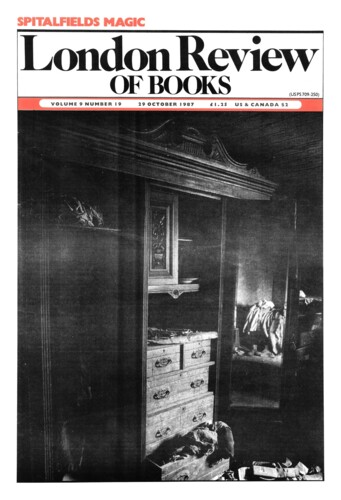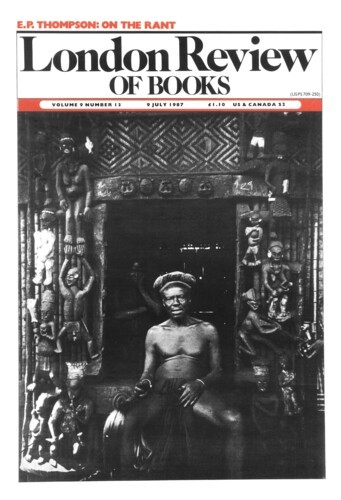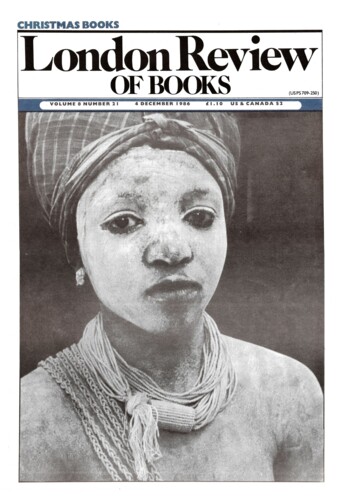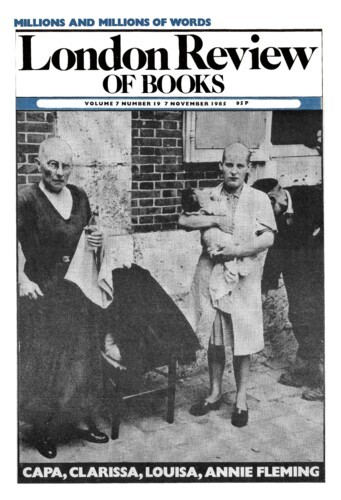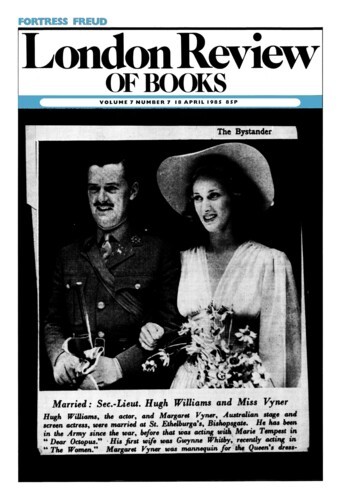Psychoanalysts have a difficult relationship with the rest of the world – or, as they sometimes call it, ‘the goyim’. Janet Malcolm’s two very striking books of reportage, Psychoanalysis: The Impossible Profession and In the Freud Archives, make this clear. Freud’s wife, according to her grandson, ‘divided the world into those who knew of grandfather and those who did not’. The latter, he said, ‘did not play any role in her life’. In that sense every analyst is Freud’s wife and lives in a world entirely taken up with psychoanalytic concerns. Sometimes it seems that they hardly know what may happen in real life and fear it accordingly. On the night of the New York black-out in 1965 someone I know was with his analyst. As the lights went out the analyst – not the patient – jumped out of his chair and shouted: ‘They’re coming to get me.’ Psychoanalysts have had good reasons for considering themselves beleaguered, but for the past twenty years at least, the world, being less interested in them, has been less interested than they imagine in finding them out. ‘No decent analyst would let his picture appear in the Times,’ one New York analyst snapped at another, as if he had caught him sneaking his image into the temple of Baal. Ms Malcolm speaks of the ‘chilly castle of psychoanalysis’ and admires its austerities. One might less admiringly think of it as Fortress Freud and question whether it too needs to be so insistently defended.’
Psychoanalysts have had good reasons for considering themselves beleaguered, but for the past twenty years at least, the world, being less interested in them, has been less interested than they imagine in finding them out. ‘No decent analyst would let his picture appear in the Times,’ one New York analyst snapped at another, as if he had caught him sneaking his image into the temple of Baal.
